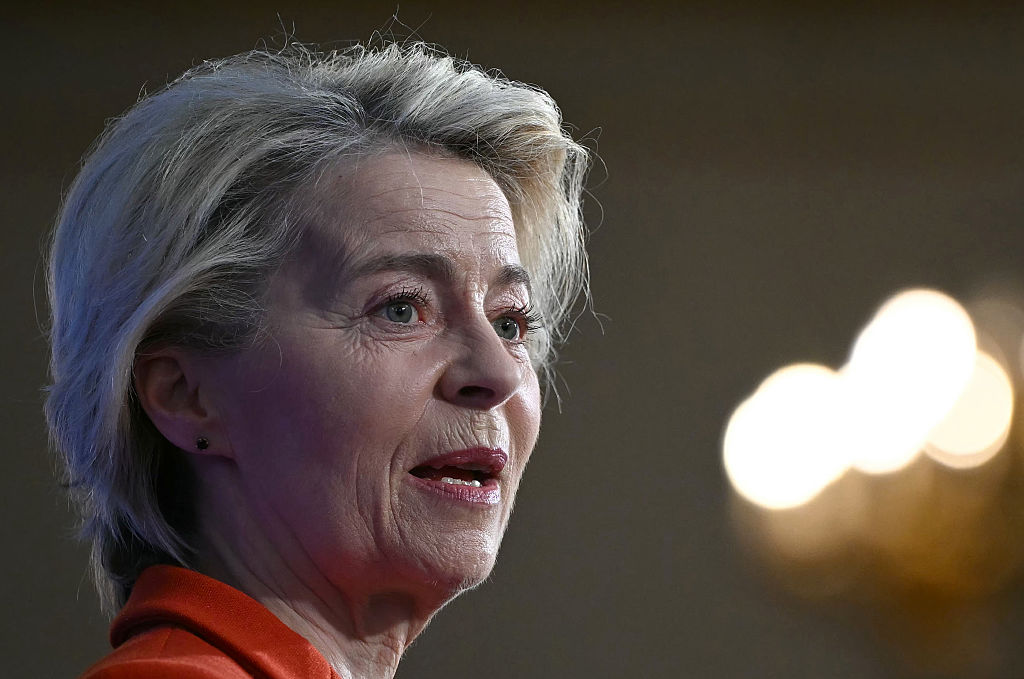EU member states will have to meet “milestones and targets” to receive payouts from the bloc’s next trillion-euro long-term budget, Commission President Ursula von der Leyen said on Tuesday.
The proposed overhaul of the EU’s seven-year cash pot, known as the Multi-annual Financial Framework (MFF), could provide Brussels with greater oversight over how money is disbursed.
The revamp is also likely to exacerbate profound disagreements between richer member states in Northern and Western Europe, which strongly favour the cash-for-reforms model, and poorer countries in the South and East.
“Each tranche of [EU] funding will be dispersed when agreed objectives have been achieved,” von der Leyen said. “Because, we all know… this is the strongest incentive you can set to get things done.”
“We will draw on the recent experience with milestones and targets,” von der Leyen added, referring to the bloc’s €648 billion pandemic recovery fund, which provides grants and loans to member states to finance investments in exchange for targeted reforms.
Von der Leyen also promised to modernise two of the bloc’s biggest and most politically sensitive spending programmes: the Common Agricultural Policy (CAP), which provides subsidies to farmers, and Cohesion Policy, which supports economic development and investments in poorer regions.
Together, the two account for around two-thirds of the EU’s €1.2 trillion budget.
In an attempt to forestall concerns that tighter conditionality could cut out Europe’s regional and local authorities, von der Leyen said the next MFF would be “centred on national and regional partnerships for investments and reforms,” with the CAP and cohesion funding maintaining “a central place.”
The Commission also plans to press ahead with its proposed European Competitiveness Fund – a pot of EU-level investment for strategic sectors such as artificial intelligence, bio-technologies, and space.
Meanwhile, the EU’s flagship research spending programme, Horizon Europe, “will stay as a self-standing programme” that will nevertheless be “tightly connected” to the Competitiveness Fund.
Previously leaked Commission plans had suggested that Horizon Europe would be subsumed into the Competitiveness Fund.
Flexibility will also be a priority in the next MFF. More than 90% of the current EU budget is tied up in priorities set in a different decade, leaving the bloc with just 4% wiggle room of the total budget in the face of unforeseen circumstances.
“Our current budget was designed for a world which no longer exists,” she added.
Keeping the Horizon Europe research scheme out of the Competitiveness Fund was a “very big gift” to Germany, the country’s new research minister, Christian Democrat Dorothee Bär, said on Tuesday in Berlin at an appearance alongside European Research Commissioner Ekaterina Zaharieva.
“It is very important for our country” that the next framework budget for research “will remain an independent programme”, Bär added.

It's the end of the EU budget as we know it (and Brussels doesn't feel fine)
Eyeing Washington and Beijing, von der Leyen is set to unveil her ‘killer’ long-term budget
This story was updated to include comments from German Research Minister Dorothee Bär.
(mm, bts)
Source: www.euractiv.com



